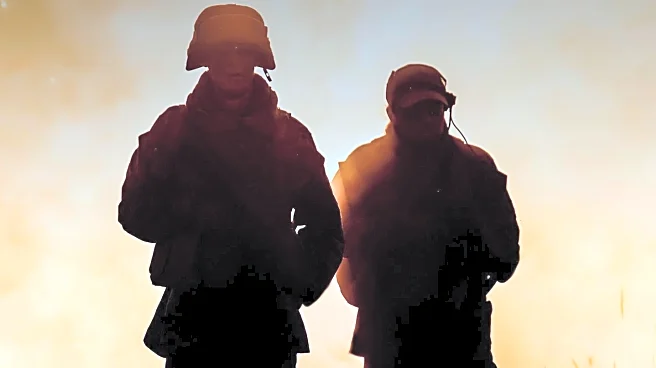What is the story about?
What's Happening?
In response to religious questions from wounded soldiers, the Association of Community Rabbis in Israel has launched a halachic hotline. The initiative addresses complex religious queries, such as the use of cannabis or music on Shabbat for trauma survivors, and exemptions from fasting for injured soldiers. The hotline pairs rabbis with mental health professionals to provide religious and emotional support. The project was initiated by rabbis who themselves were wounded in the conflict, offering guidance based on personal experiences. The hotline aims to be part of the healing process for soldiers, addressing spiritual needs alongside physical recovery.
Why It's Important?
The launch of the halachic hotline highlights the intersection of religious practice and mental health in the context of war. It provides a unique support system for wounded soldiers, addressing spiritual and emotional needs during recovery. The initiative reflects the broader societal impact of the conflict, as religious leaders adapt to new challenges and offer guidance. The hotline's approach may influence future religious and mental health support systems, promoting holistic recovery for trauma survivors.
What's Next?
The hotline may expand its services as more soldiers and civilians seek guidance, potentially influencing religious practices and mental health support in Israel. The collaboration between rabbis and mental health professionals could lead to new models of spiritual and psychological care. The initiative's success may inspire similar projects in other conflict-affected regions.
Beyond the Headlines
The ethical and cultural dimensions of religious guidance in wartime may provoke discussions on the role of faith in trauma recovery. The initiative's impact on religious practices and community support systems could lead to long-term shifts in how spiritual care is integrated into mental health services. The personal experiences of wounded rabbis may influence broader societal perceptions of resilience and recovery.















